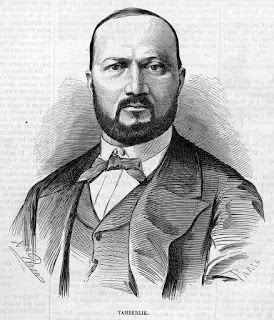The Five Days of Milan
Citizens rebel to drive out ruling Austrians
The Five Days of Milan, one of the most significant episodes of the Risorgimento, began on this day in 1848 as the citizens of Milan rebelled against Austrian rule. More than 400 Milanese citizens were killed and a further 600 wounded but after five days of street battles the Austrian commander, Marshal Josef Radetzky, withdrew his 13,000 troops from the city. The 'Cinque Giornate' uprising sparked the First Italian War of Independence between the Kingdom of Sardinia and the Austrian Empire. Much of northern Italy was under Austrian rule in the early part of the 19th century and they maintained a harsh regime. Elsewhere, governments were introducing social reform, especially in Rome but also in Sicily, Salerno and Naples after riots against the Bourbon King Ferdinand II. Ferdinand, ruler of the Kingdom of the Two Sicilies, and Charles Albert (Carlo Alberto) of Savoy, in the Kingdom of Sardinia, adopted a new constitution, limiting the power of the monarchy, and Pope Pius IX in the Papal States followed suit a little later. The response of the Austrians was to seek a still tighter grip on their territories in Lombardy-Venetia. Read more…
_________________________________________________________________
Bobby Solo - pop singer
Sixties star found fame after Sanremo disqualification
Bobby Solo, who was twice winner of Italy's prestigious Sanremo Festival yet had his biggest hit with a song that was disqualified, was born Roberto Satti on this day in 1945 in Rome. The singer and songwriter won the contest in 1965 and again in 1969 but it was the controversy over his 1964 entry that thrust him into the spotlight and sent him to the top of the Italian singles charts with the first record to sell more than one million copies in Italy. To emphasise that the competition was to select the best song, rather than the best artist, each entry was sung by two artists, one a native Italian, the other an international guest star. In 1964, Solo was paired with the American singer Frankie Laine to showcase Una lacrima sul viso (A Tear on Your Face). Laine performed the song in English but Solo was stricken with a throat problem. Rather than withdraw, he sang the song with the help of a backing track, only to be told afterwards that this was against the rules. The song was disqualified but attracted such attention that it became a huge hit, topping the Italian singles chart for eight weeks. Sales in Italy and other countries eventually topped two million. Read more…
________________________________________________________________
Mount Vesuvius – the 1944 eruption
The last time the volcano was seen to blow its top
Mount Vesuvius, the huge volcano looming over the bay of Naples, last erupted on this day in 1944. Vesuvius is the only volcano on mainland Europe to have erupted during the last 100 years and is regarded as a constant worry because of its history of explosive eruptions and the large number of people living close by. It is most famous for its eruption in AD 79, which buried the Roman cities of Pompeii and Herculaneum and is believed to have killed thousands of people. An eyewitness account of the eruption, in which tons of stones, ash and fumes were ejected from the cone, has been left behind for posterity by Pliny the Younger in his letters to the historian, Tacitus. There were at least three larger eruptions of Vesuvius before AD 79 and there have been many since. In 1631 a major eruption buried villages under lava flows and killed about 300 people and the volcano then continued to erupt every few years. The eruption which started on 18 March 1944 and went on for several days destroyed three villages nearby and about 80 planes belonging to the US Army Air Forces, which were based at an airfield close to Pompeii. Read more…
Home

























